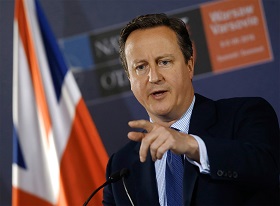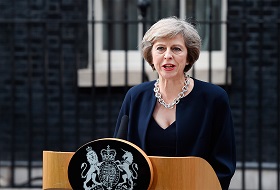Europe is still recovering from shock after the UK announced its Brexit goals. Joseph Dobbs, research fellow at ELN, comments on the possible implications for the EU.
Europe is still recovering from shock after the UK announced its Brexit goals. Joseph Dobbs, research fellow at ELN, comments on the possible implications for the EU.
What do you think the implications for Russia-EU relations could be after Brexit?
Most of Europe is still in shock from the result of Brexit. I think a lot of people didn’t expect the outcome that we got. People in the United Kingdom definitely didn’t. I think it’s notable that the EU’s new global strategy came out only a few days after Brexit.
However, it shows that Brexit will impact EU-Russia relations by distracting the European Union at a time of critical importance with regards to Russia. I think that hopes in some parts of Russia that it might result in the lifting of sanctions are real, but I also think that the EU is going to be at pains to demonstrate unity next year, and as a result it may also seek to extend sanctions.
In the long-term perspective, it obviously makes the European Union a slightly weaker organization, a slightly less attractive destination for investment, and it should be a concern for Russia. Russia needs a strong European Union, and I think that Russia should be concerned.
Some also predict that Britain might get even closer to the United States after Brexit. What do you think about that?
The UK’s going to be at pains to demonstrate that it remains a part of the Euro-Atlantic area as a whole. As shown in the Warsaw summit with regards to NATO, the UK’s going to be keen to show that they are still a functioning ally within the North Atlantic space. The US under a new president, most likely Hillary Clinton, will be interested to demonstrate that not only the UK is a closer ally of the United States, but all three components—the UK, the US, and the EU. It’s unlikely in the long term that the UK will move too far away from Europe with regards to its relations with the rest of the world, in particular with regards to Russia, and it’s going to result in a closer relationship between the EU and NATO, which may lead to stronger common European positioning.
My last question is about the UK Prime Minister Theresa May. What do you think her line with regards to Russia and the EU after Brexit could be?
I think that Theresa May, who became Prime Minister of the United Kingdom on July 13, after David Cameron stepped down formally, is likely to employ a delaying tactic with the European Union. The UK, because it was so shocked by the result of Brexit, has not really developed its own policy towards the European Union. We don’t know what relationship we want with the EU yet, and as a result, I imagine that Theresa May will delay the imposition of Article 50, the formal notification process to leave the European Union, until later this year or potentially next year. Theresa May has already indicated that she will do it.
At that point, however, we will be in the midst of a French presidential election, which could be quite contentious. Then we will be in the midst of a German Bundestag election, even more contentious than one might have expected. So as a result, we could end up seeing a longer drawn-out process of leaving the European Union with Theresa May at the helm.
I think that unless we decide to remain a member of the European single market, which would come with the acceptance of freedom of movement which many of our voters in the UK would not tolerate, it could be a quite long, drawn-out process indeed. This situation would, from my perspective, weaken the European Union’s ability to deal with many of the other present challenges that we have. What is more, it could weaken the UK’s ability to forge a new path on its own.
Interview by Daria Khaspekova, web editor in chief.





